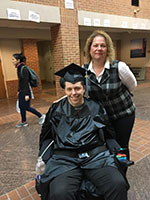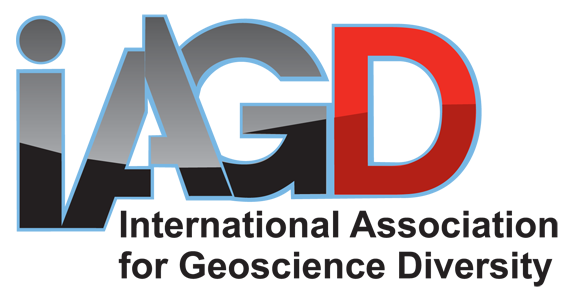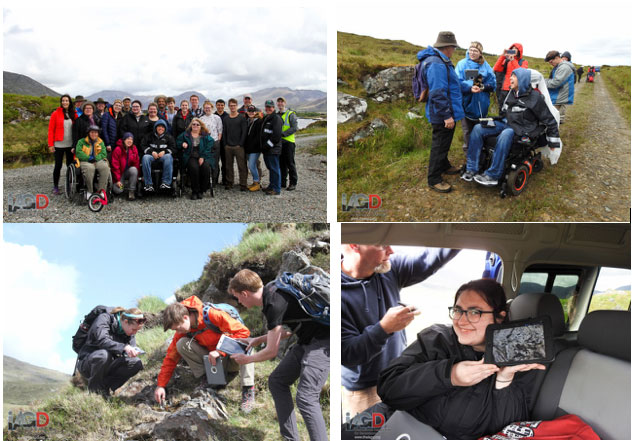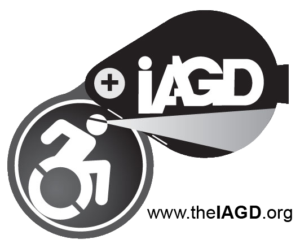 By Sean Thatcher, Chairman, IAGD Student Community
By Sean Thatcher, Chairman, IAGD Student Community
Finding a mentor is something that has been presented to undergraduates since the day they sat through their freshman orientation. Mentors are a great resource that can provide students with important information at their home universities. They can also assist with academic advising and help students find scholarships, internships, or fellowships which can make college more affordable and bolster a student’s resume. With all this talk about the importance of what mentors can provide, where can you find a mentor – in particular, how can students with physical or intellectual disabilities find mentors in their own universities or elsewhere? In my own experience, I was the first student in a small department that wanted to study geology as a quadriplegic, and needed to figure out a way to show that my intellectual contributions to course work and research initiatives could be just as instrumental as the physical contributions of other students. I was fortunate to have been able to find a mentor through years of trial and error, but here are some helpful tips and suggestions on how to find mentors in your home university and beyond.
1. Attend your professor’s office hours.
Attending the office hours of faculty members is one of the most under-utilized resources that students can take advantage of. Office Hours allow you to ask in-depth questions about specific course material you are interested in, gives faculty members a chance to know you on a more personal level, and provides faculty in your own university the opportunity to better understand your strengths beyond your disability. Discussions with faculty during this time may also alert you to independent study courses they may teach, scholarship opportunities, and the chance to create a strong working relationship as you continue through your program. In my own experience, taking advantage of office hours alerted faculty members to my interest in remote sensing and data analysis that would not have been discovered if I had never met with them during their office hours. It also provided me with the opportunity to take several independent study courses that were in line with my academic interests that I would not have known existed.
2. External organizations that promote equal opportunity and inclusion.
There are several organizations which strive to challenge the classical norms of who geologists are, what they can physically do, and how they look. Because of the persistent stigma of what a “true geologist” is supposed to be, it can be extremely frustrating when people cannot see past your disability, gender, or race, when these attributes do not define the contributions you are capable of making in your field of study. The IAGD is one such organization that is trying to make a difference in this area, and other national organizations are also trying to change these stigmas because of the importance of diverse perspectives. The Geological Society of America has the Onto the Future (OTF) Program that offers mentoring to undergraduates from underrepresented groups attending their first national conference, the American Geophysical Union offers several diversity programs for mentoring and research presentations, and the National Science Foundation offers dozens of research programs for undergraduates (REU’s) that you can apply to participate in. These are only a few organizations that offer mentoring opportunities at the national level, but with a quick Google search there are hundreds more from the state level to international organizations that are trying to provide additional mentoring to students that deviate from the typical geologist.
3. Be persistent, polite, and strategic.
What makes you different will never change, but the way people view others that are different can change. Changing the point of view of others is a slow and gradual process that is only accomplished by being persistent, polite, and strategic in the way you overcome obstacles. When you are met with apprehension from others because of their preconceived notions of your abilities, be polite but continue to pursue your interests by meeting with other faculty members within your department. If you are still met with apprehension, be sure to send follow up emails, leave voicemails, or make appointments with other faculty members in other departments to see if they have the resources to assist you – or if they have connections at other universities that may be able to assist you. These meetings and recorded contact between you and faculty members will allow you to continue to develop advocacy skills that will help you overcome other issues during your education and future career. This is the most difficult suggestion to follow because being consistently met with a metaphorical closed door is frustrating and being polite while frustrated is even harder. Use that frustration to motivate yourself to send that email, apply to that external program or scholarship, and connect with other students within and outside of your university to see how they have overcome similar issues. This will allow you to build up a network of like-minded individuals that understand your frustration and provide you with the support you need to get through your program.





